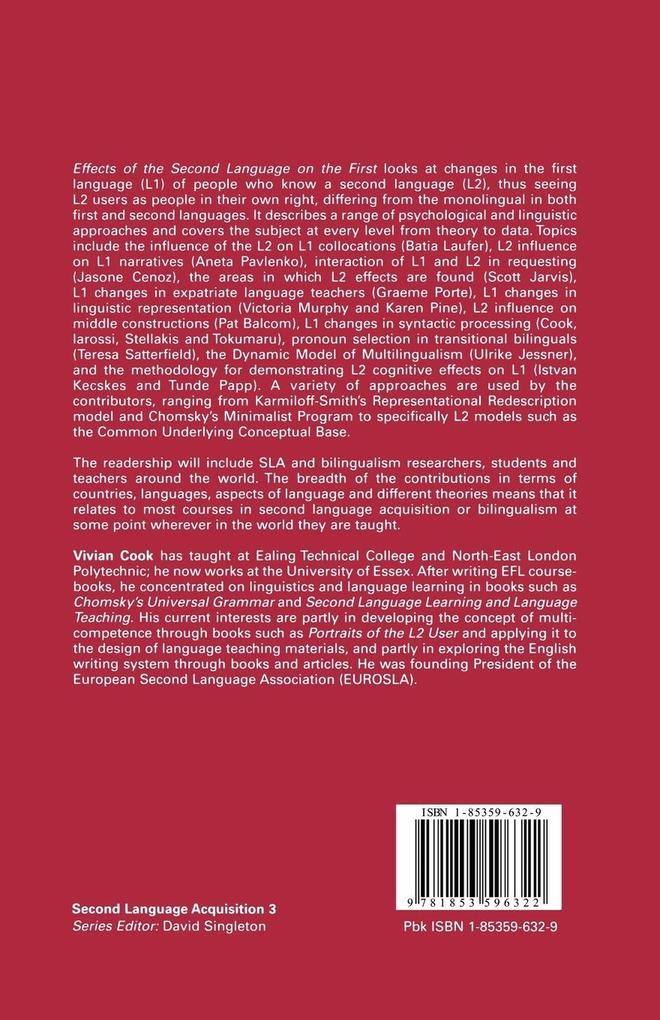
Zustellung: Mo, 14.07. - Do, 17.07.
Versand in 5 Tagen
VersandkostenfreiBestellen & in Filiale abholen:
This book looks at changes in the first language of people who know a second language, thus seeing L2 users as people in their own right differing from the monolingual in both first and second languages. It presents theories and research that investigate the first language of second language users from a variety of perspectives.
Inhaltsverzeichnis
Introduction - the changing first language in the L2 user's mind, Vivian Cook; the influence of L2 on L1 collocational knowledge and on L1 lexical diversity in free written expression, Batia Laufer; "I feel clumsy speaking Russian" - L2 influence on L1 in narratives of Russian L2 users of English, Aneta Pavlenko; the intercultural style hypothesis - L1 and L2 interaction in requesting behaviour, Jasone Cenoz; probing the limits of L2 effects in the L1, Scott Jarvis; English from a distance - code-mixing and blending in the L1 output of long-term resident overseas EFL teachers, Graeme Porte; productivity and lexical diversity in native and non-native speech, Jean-Marc Dewaele and Aneta Pavlenko; second language influence on first language linguistic representations, Victoria Murphy and Karen Pine; cross-linguistic influence of L2 English on middle constructions in L1 French, Pat Balcom; effects of the second language on the syntactic processing of the first language, Vivian Cook, Elisabet Iarossi et al; economy of interpretation - patterns of pronoun selection in transitional bilinguals, Teresa Satterfield; a dynamic approach to language attrition in multilingual systems, Ulrike Jessner; how to demonstrate the conceptual effect of L2 on L1? Methods and techniques, Istvan Kecskes and Tunde Papp.
Mehr aus dieser Reihe
Produktdetails
Erscheinungsdatum
01. März 2003
Sprache
englisch
Seitenanzahl
280
Reihe
Second Language Acquisition, 3
Herausgegeben von
Vivian Cook
Verlag/Hersteller
Produktart
kartoniert
Gewicht
399 g
Größe (L/B/H)
216/140/17 mm
ISBN
9781853596322
Entdecken Sie mehr
Bewertungen
0 Bewertungen
Es wurden noch keine Bewertungen abgegeben. Schreiben Sie die erste Bewertung zu "Effects of the Second Language on the First" und helfen Sie damit anderen bei der Kaufentscheidung.


































